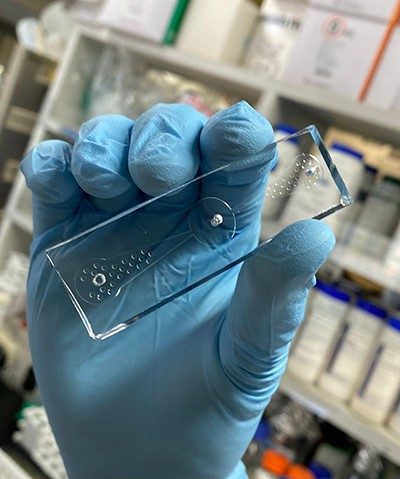Roundworms sniff out lung cancer with novel worm-on-a-chip
Date: 23.3.2022
New research presented at the spring meeting of the American Chemical Society has demonstrated how tiny roundworms can be used to detect lung cancer. A “worm-on-a-chip” device has been developed that is currently 70 percent effective at detecting cancer cells.
 This new research looking at tiny roundworms called Caenorhabditis elegans. Prior lab studies with urine samples have found these roundworms seem to preferentially move toward samples from patients with cancer so the new research looked to turn this behavioral characteristic into a simple diagnostic test.
This new research looking at tiny roundworms called Caenorhabditis elegans. Prior lab studies with urine samples have found these roundworms seem to preferentially move toward samples from patients with cancer so the new research looked to turn this behavioral characteristic into a simple diagnostic test.
“Lung cancer cells produce a different set of odor molecules than normal cells,” explained Shin Sik Choi, principal investigator on the research from Myongji University in Korea. “It’s well known that the soil-dwelling nematode, C. elegans, is attracted or repelled by certain odors, so we came up with an idea that the roundworm could be used to detect lung cancer.”
The researchers created a simple plastic chip with wells at either end connecting to a channel in the middle holding a small number of the roundworms. A culture from lung cancer cells was placed in a well at one end and healthy lung cells were placed in the well at the other end.
After one hour the researchers said a significantly higher volume of worms moved to the lung cancer cells than the healthy cells. Early results showed this device could be used to detect cancer cells with 70 percent accuracy.























